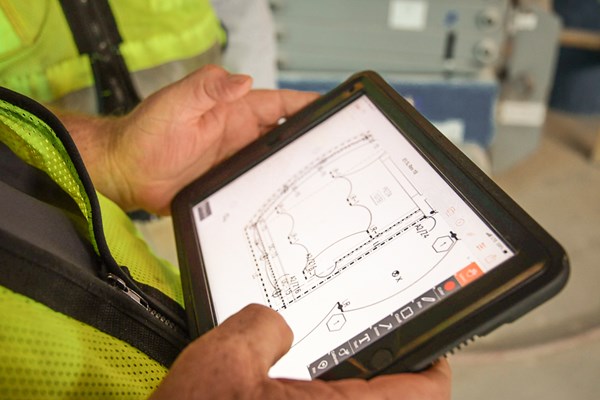
When it comes to construction, the old adage “The more things change, the more they stay the same” used to be applicable. The industry had a reputation for being slow to adapt to change. However, the last ten years has seen an influx of new technologies being used by construction companies to improve overall productivity.
Driven by digital programs and smart technologies along with new generations of employees embracing them, the construction industry is quickly moving to incorporate advances to provide innovative solutions to clients’ needs. At the same time, the use of technology reduces operational costs, increases safety, and offers competitive advantages on projects.
Here are some of the technology-driven changes shaking up construction today:
BUILDING INFORMATION MODELING (BIM) – Generating Computer Representations of Buildings and Utilities
Using BIM, 3D models of buildings and infrastructure are easily created and shared, enabling clash detection and interference that normally would have been discovered on the site are now seen in the office even before construction begins. Quick changes to the design are easy to make, and revised cost estimates and project timelines are available for comparison and approval. BIM helps projects stay within budget while improving on-time delivery.
AUGMENTED REALITY (AR) – A Way to Stage a Project in 3D for Buyers
The use of AR makes it possible to present a project to owners and developers during a preconstruction meeting in a simulated 3D, real-life format. Wearable technology enables a 360-degree video of the project and the surrounding environment, and fast simulation of architectural and structural changes can be viewed. In addition, AR can be used for safety training and hazard simulations.
DRONES – They Are Not Just for Aerial Photography
Drones are one of the fastest growing technologies trending in construction. They can rapidly map large areas, providing heat maps and thermal images. Real-time actionable software enables rapid decision making in the construction process. Drones also aid in providing a safer workplace as they can be used at great heights, as well as in places previously requiring humans. And, they can be used for on-site security to minimize the risk of theft.
SMART CONTRACTS – An Efficient Way to Track Contracts and Deliverables
Smart contracts are computerized versions of traditional, legally binding paper contracts in which the terms of an agreement between a buyer and a seller are directly written into lines of code that exist across a decentralized blockchain network. In the context of the construction industry, smart contracts offer an all-in-one shared system for buying, tracking, and paying for services. Through the use of smart contracts, deliverables, project data, and transactions can be tracked and recorded in real time, and rules and deadlines can be easily enforced. Overall, the use of smart contracts can lead to faster closeout, increased security, and enhanced project accountability.
MOBILE TECHNOLOGY – Offering Improved Productivity and Efficiency
Mobile apps designed specifically for use on construction projects allow project managers and field personnel to update, review, and approve daily schedules, reports, documents, time cards, and other information in a more precise and time-sensitive manner. And, of course, having complete mobile connectivity offers productivity and communication advantages. For example, the use of mobile devices and related apps enables all involved parties to view the same information in real time.
In summary, technology trends help the construction industry find ways to reduce costs through improved efficiencies. Projects are completed within budget while safety is improved on the job. As an industry leader, Cleveland Construction embraces new technologies that assist our skilled employees in maintaining our award-winning performance. As far as we’re concerned, technology is here to stay!